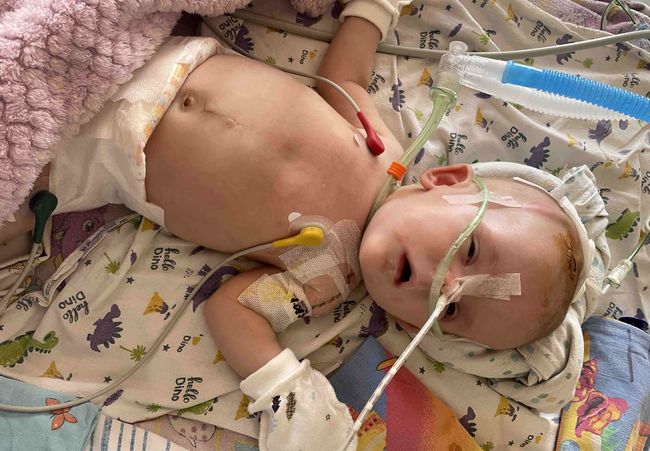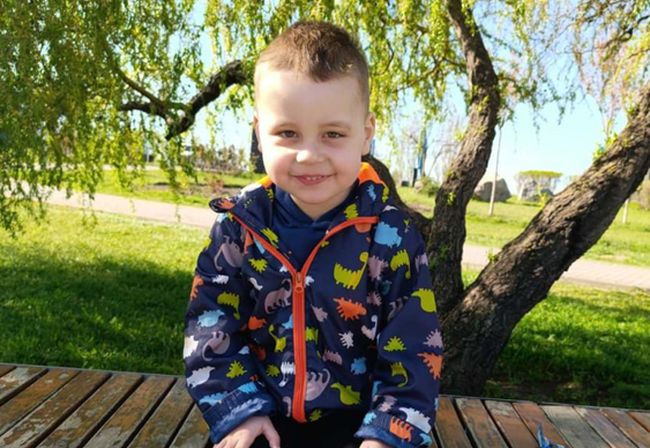Do you love children? Do you dream of having a child but stopped believing it is possible for this dream to come true?
Around a quarter of couples in Ukraine are unable to have children.
However, there are more that 100,000 abandoned children in our city alone. 90% of these children are orphans, despite their living parents. Within the boundaries of the country only 256 families have an adopted child as a member. Only 395 children out of thousands are adopted. Those not as lucky spend their childhood in one of the 181 Ukrainian Orphanages.
Thus, if you are dreaming about starting a family or want to extend your existing one- look no further. Adopt one of these children and make your dream as well as that of an abandoned child come true.
Here is what Ludmila Balym (first vice - director of the State Department for Adoption and Human Rights) told us about the particulars of children adoption including care and procedure.
Fears Created by Parents
Today there is an extensive waiting list full of foreigners willing to adopt a Ukrainian baby.
However, one of the priorities of the Ukrainian government is to develop a national adoption. Olympic champion Lilia Podkopaeva and her husband set a great example when they welcomed an adopted child into their family. I am praising them for being so open about it. Unfortunately a lot of Ukrainians still believe that being adopted is something to be ashamed of.
Americans held similar views in the sixties until there was a complete transformation of the societal opinions on the matter. Now there is no stigma. Americans are not afraid to speak about their adopted children.
To know where s/he comes from should be a prerogative of every child. To refuse an adopted person such information following the rules of strict confidentiality requirement in my opinion is wrong. This condition was created for a piece of mind of a parent who adopted a child.
However, in my experience, if a child is aware that s/he is adopted, a lot of problems can be avoided.
There is a lot of information guiding parents as to how they can approach the subject. Remember, if a child has fears, in majority of cases an adult created them. A child who is not aware that s/he is adopted will ask one day: Who am I? Where did I come from?
Even if the story is tragic, and the child's own mother abandoned him/her, this information must be presented correctly. For example you may consider saying: " Unfortunately something happened and your mother cannot be with you. But she gave birth to you. I then adopted you because I was searching for you all my life- only you!" In these circumstances a child will grow up understanding that s/he has two mommies and will not put a label on adoption as being " bad" or " tragic".
Orphan's Foster Care
In Western Europe and America there is a limited number of Orphanages. Instead, an orphan is allocated to a foster home. In Ukraine we have also started establishing similar institutions. However, do not confuse a foster care family with a family that adopts a child. With the latter, a child becomes a full-right member of the family. S/he loses the status of an orphan.
When a child is in the foster care, however, the orphan status is still there. A foster family receives a financial benefit for every child they adopt as well as an equivalent of 35% from the benefit being allocated directly to one of the foster parents.
In Western Europe a child can be placed with such a family for a short period of time whilst the child's parents are investigated by the Social Services. In Ukraine, however, if such investigation takes place, a child can only be allocated to a foster family for a long period, and only if it is objectively impossible to live at home with his/her real family.
A Myth About Bad Genes
Too often couples that are unable to have children refuse to adopt a child because they believe a child is bound to inherit a "bad gene" of his/her biological parents. There is a stereotype that the genes pre-condition a child's bad behaviour. In reality, however, an outside environment influences a child's behaviour more than anything else.
Why is it more difficult to cope with an orphan than a child who grew up in a conventional family?
An orphan is often neglected. Scientific studies illustrate that when in a mother's womb, a foetus can hear a voice hence understands that s/he is loved. It is also proven that unwanted children develop later than their peers. They are afraid to let the world know they exist.
At times of an abortion a foetus often looks as if s/he trying to shield his/her self.
When at school, if a child is performing badly academically, often it is because of the neglect. For example a child has had no toys to play with or parents have provided an inadequate amount of communication and physical contact.
Ukrainian system of orphan welfare is about to change. Not because the specialist which are looking after orphans are not capable of performing their duty, but because a child needs a parent.
No nanny, even the greatest nanny in the world, can substitute love of a parent. A child needs constant support. I was told of a family where for a year, an adopted child would come up to his mother every half hour asking " Do you love me?". More than anything, it was important for this five-year-old boy to hear and understand that he is loved.
Accent
Following the Ukrainian Ministry of Family, Youth and Sport Affairs recommendation, a sum of 8 500 grivnas should be granted to an adoptive family.
To concur demographic problems a similar grant is already in existence for mothers giving birth.
The proposed sum will not depend on the adoptee age and will be paid over a period of time.
Ministry's second recommendation was to allow a three months holiday to one of the adoptive parents.
A possibility of paying a monthly child benefit is also being considered. This practice already exists in Belarus.
In fact, the practice of the State's financial support for every adopted child exists extensively around the world. In some countries this may take a form of tax exemptions, in others support is provided in a form of medical insurance.
In the Language of Figures
Last year foreigners adopted 2110 Ukrainian children. Ukrainian nationals adopted 3085 children. 1200 foreign nationals are on a waiting list to adopt a Ukrainian child. Prospective parents on the list are mostly from America, Italy, Spain, France, Germany and Israel. Amongst them, only few are Ukrainian immigrants. In the last decade American families adopted 6000 children.



